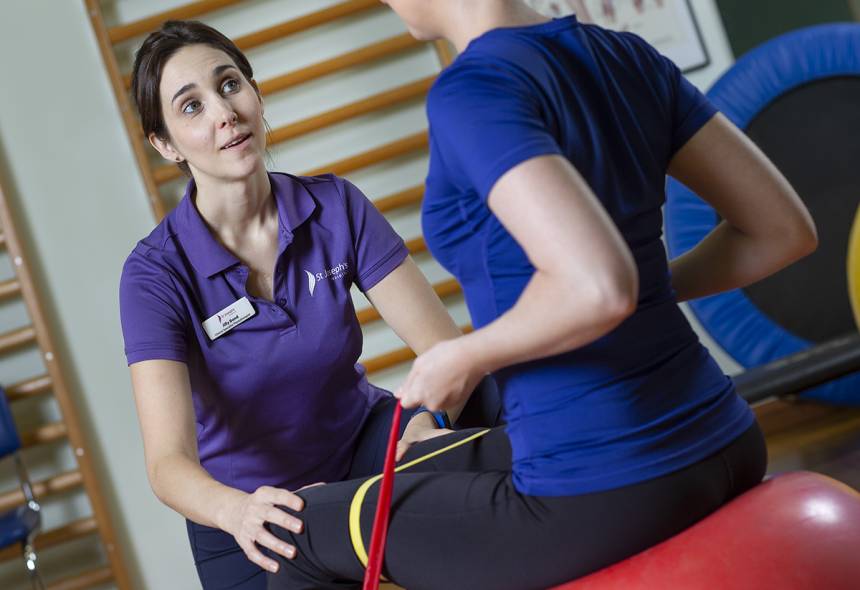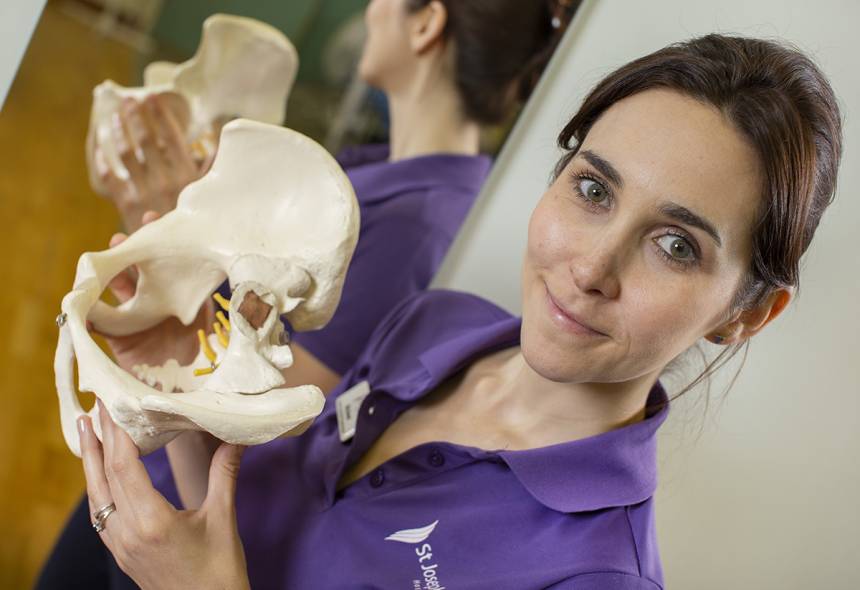Ways to stop embarrassing leaks
Date Posted: 2nd January 2020

Leakage is never normal and can be prevented.
Urinary incontinence is the unintentional passing of urine. It’s a common problem thought to affect millions of people.
Recently, television personality and presenter, Ferne McCann opened up about her struggle with incontinence following the birth of her daughter. She talked about the embarrassment of wetting herself daily and her worries for the future. One in three women will struggle with incontinence and many suffer in silence, but bladder leakage after childbirth is not normal. You should be able to run, jump, shout, laugh, cough or sneeze without any fear of leakage after having a baby.
Leakage is usually the result of the weakening of muscles used to prevent urination, such as pelvic floor muscles and the urethral sphincter. During childbirth, these muscles can become weaker, stretched and sluggish. A strong pelvic floor will support your bladder and prevent any leakage.
The good news is that just 12 weeks of pelvic floor exercises will completely resolve any issues in most women.
The pelvic floor muscles form a hammock in the middle of your pelvis. They not only support your pelvis but also your organs, and provide continence. At rest they’re in a bowl shape and when they work they lift up and forwards, inverting into an opposite bowl shape. Some people might try to pull in as if to stop from passing water, but this only activates some of the pelvic floor. The best way to activate the whole pelvic floor is to start by pulling in as if to stop from breaking wind and aim to try and bring your bottom hole toward your pubic bone. This will help the whole muscle to lift and support your bladder as well as your bowel.

If a muscle is weak we need to train it, and this is no different in the pelvic floor.
To recover from incontinence it’s pretty straight forward:
- Start by sitting down and relaxing your tummy, legs, and bottom.
- Pull in your bottom hole up and forwards as if to stop from breaking wind and hold for as long as you can (maximum around 15 seconds) then relax. If you can feel the muscle releasing then you’ve been holding, if you can’t then try holding for a slightly shorter period.
- Do this as many times in a row as you can until the muscle feels fatigued, maximum around 10 - 15 reps. Doing a few holds now and then isn’t enough, the muscle needs to get tired to be stimulated to strengthen.
- After you’ve done these long holds do some shorter quick snaps. These shouldn’t be too quick – snap your muscles up, drop them down then take a second or two to fully relax. Do this as many times in a row as you can, at most aim for 15.
Sometimes the pelvic floor can go into spasm after childbirth and cause incontinence as well. In this case, doing pelvic floor exercises alone won’t necessarily help. That’s why it’s always worth getting a specialist assessment to ensure you’re doing the right thing.
Ferne McCann had a Mummy MOT assessment, something that we also offer at St Joseph’s. This is a postnatal assessment of the abdominal and pelvic area carried out by a Specialist Pelvic Health Physiotherapist, ideally after the baby is 6 weeks old. You have your posture, breathing, tummy gap and pelvic floor strength checked and get the opportunity to discuss any other aches and pains you may have had since delivery. You are then given a safe and effective rehab plan to get your body back to where you want it.
The Mummy MOT is recommended for all women following childbirth, so whether you are 6 weeks or 6 years post-childbirth the Mummy MOT is for you.
After having a baby many women have weakness in either their tummy or pelvic floor area which can lead to significant issues with continence and prolapse. Over a third also suffer from chronic pelvic pain and find returning to intimacy painful.
From Ferne McCann’s perspective, visiting the physiotherapist was the moment that really gave her hope. She implores other women to do the same.
To discover more contact our specialist Women’s Health Physiotherapy team on 01633 820321



